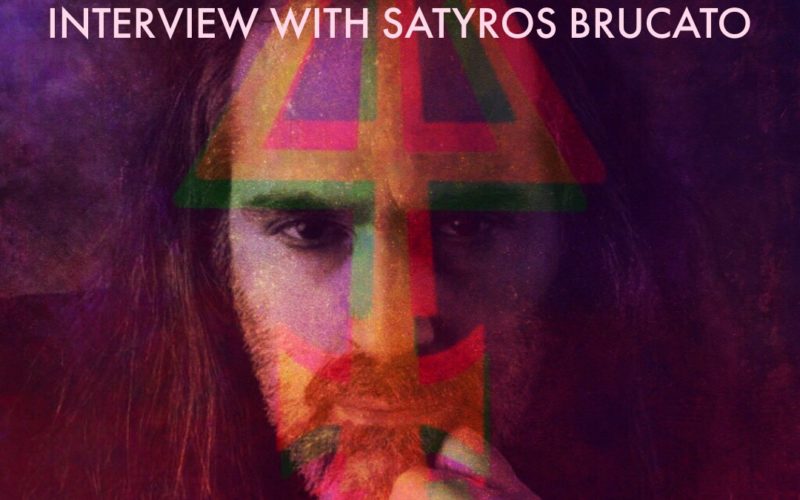Latest News
Antonios Rave-N Galatis, author of “Life”
On today’s Mage: The Podcast we talk with author Antonios Galatis about his short story, “Life,” which appreared in the Truth Beyond Paradox anthology which you can purchase on Amazon or DriveThruRPG. You can also listen to “Life” here. We discuss how Antonios discovered role playing games and how he discovered Mage: The Ascension; whether Antonios is a storyteller or a player; nerds in Greece; how role playing games due to World of Darkness; the world of his protagnoist; Helenna; what “Life” is about; the upcoming supplment for Mage: The Ascension, “Gods and Monsters;” the importance of his editor, Atalanti Evripidou; te experience of recording “Life” for the podcast with his friend, Panos Skezos; the importance of describing things in stories and role playing games; Joseph Campbell and C.G. Jung and masculine and femine aspects of human nature; the timelesness of “Life;” Podcastle; the upcoming Mage: The Ascension shortfilm that will be fimed in Greece.
“Life” by Antonios Rave-N Galatis
On today’s Mage: The Podcast we talk with author Antonios Galatis about his short story, “Life,” which appreared in the Truth Beyond Paradox anthology which you can purchase on Amazon or DriveThruRPG. You can also listen to “Life” here.
Aris Mosquito Risakis’ Mage Tattoo
There is a first time with everything. Like a tattoo. So since it’s something you’re stuck with, you’d better make it about something significant. Like something that taught you how subjective reality can be and how one thing can be seen a million different ways depneding on who is looking at it. Like something that taught you to put your self in other people’s shoes.
Like Mage: The Ascension.
Thanks to the talented Alexandros Raptakis for designing it as well as applying it.
Visit Alexandros at https://www.facebook.com/BeeInkedTattoo/
The Lexicon of Mage
On today’s show co-host Adam Simpson shares how he discovered role playing games and Mage: the Ascension.
What is Mage: The Ascension?
Welcome to the first episode of Mage: The Podcast! On today’s show we’re joined by Mage: The Ascension’s co-creator, Satyros Brucato.
Hints for Nephandi Just Joining the Fray
In the early days of Mage: The Ascension the Nephandi were more narrowly defined as cultists who served Cthulhu-like beings. This piece was inspired by If I was an Evil Overlord and is mock advice to NPC Nephandi.
- Pick one faith and stick with it. Dilettantism is the mark of the amateur.
- Avoid needless embarrassment. Practice the correct pronunciation of your god’s name in the privacy of your room before chanting it in public. Flash cards are often helpful.
- Never invoke anything bigger then your head.
- Avoid all cabalistic jewelry over 10 pounds in weight. You’re just asking for trouble.
- Citronella candles may not be used in rituals. I cannot stress this enough. Pastel-colored candles in the shape of cute animals are like beacons to the Dark Lords.
- Always keep your kit with you: candles, chalk, incense, silver knife, thugee knife, service revolver, garlic, cab fare, condoms, change.
- Never be the cultist that goes to rough up the investigators. Ransacking hotel rooms is probably safe but going round to beat up the good guys is a definite no-no.
- When a Black Mass goes awry, stay away from the cult leader. Enraged daemons always go for the pompous.
- Don’t gloat.
- If you do gloat, never reveal your plans.
- If you gloat and reveal your plans, never leave the investigators to die slowly. They don’t.
- If you do gloat, reveal your plans, and leave the investigators to die slowly, don’t have the audacity to look surprised when they show up to foil you.
- Investigators always arrive at the last moment to foil you. Start a half hour early. They hate that.
- Select ceremonial robes that are easy to run in while still affording ample concealment.
- When a religious artifact begins emitting light, close your eyes.
- When mutilating cattle, avoid the ones with the testicles.
- During ritual sacrifice, taking bits home “for later” is now considered bad form.
- Blood tests are now required of all sacrificial victims before the ritual. The effects of HIV+ offerings on the average malefic deity have never been witnessed by anyone living or even intact.
- Contrary to historic belief, drugs and invocations do not mix. When the shit comes down it is vitally necessary to be able to discern between the gibbering monstrosity to throw holy water at, and the gibbering monstrosity that will go away after a few hours, some B-complex, and a hot bath.
- Never play strip tarot.
- Piety and belief are powerful things and few forces in nature can stand against one who is true to his faith and his soul. However, it is also true that gods are on the side of the heaviest artillery, so be prepared to change sides at the drop of a hat.
- For those situations where a fresh living sacrifice is just not feasible or possible, the lower ranks of daemons can be fooled by microwaving a previously frozen chunk of ex-victim and cleverly jiggling it. A mock victim sculpted of spam is right out.
What do Zen masters and Virtual Adepts have in common?
What do Zen masters and Virtual Adepts have in common? Why, the koans, of course.
by Anders Sandberg
Once a student asked Moore: “If all objects we see are parts of the user interface, then why not regard their graphic representations as part of the model?”. Moore answered: “are their coordinates arbitrary?”. “Yes, of course”. “Then the model is arbitrary”. The student was enlightened.
A master once asked Moore: “What is between the one and the zero”. “Line noise”.
When a thunderstorm hit the system, several terminals broke down and had to be repaired. “This wouldn’t have happened if we had had a voltage surge protector”, one electrician pointed out. “Does the voltage surges need to be protected?” asked Moore. “No, the terminals”. “Well, protect the lightening instead, it is much more general”.
A student had created a clever pattern in Game of Life, and proudly showed it to Moore: “I can prove that it’s behaviour is undecidable, since it is equivalent to the Halting Problem”. Moore ripped out the power cord from the computer, and the pattern vanished. “It has halted” he said. The student was enlightened, but the pattern was lost.
“Why do we have to learn about electronics when we seek to become software engineers?” an impatient person complained. Moore overheard it and plunged a soldering iron into the complainer’s workstation: “So that the software has somewhere to live”.
One day a student asked Moore: “Does Marvin Minsky know what he is talking about? Is the mind really a society of independent agents?”. “Why did you ask?”. “Because if that is true, then there is no me”. “Is there a Minsky?”. The student was confused, and told Minsky about it; Minsky smiled and said: “No”.
When a virus attacked the system, Moore was unperturbed and didn’t try to remove it: “It is not proper to do it before observing the correct signs”. “What are they?” asked a fellow master. “To watch the network load grow, to sacrifice the root partition to nothingness and to see the users learn fear.”
“Is there anything other than information in your world?” an ironic philosophy graduate once asked Moore. “No. That question was never asked”.
A student was struggling with his project, but with no success. Finally Moore asked him what the problem was. He answered: “I try to make this distributed database automatically migrate to unused nodes, but my processes deadlock since they cannot synchronise over the net?”. “Are they all running in the same direction?”. “Yes, of course”. “Well, backtrack randomly in time then”. The student was enlightened, and the program ran.
- ‹ Previous
- 1
- …
- 29
- 30
- 31





